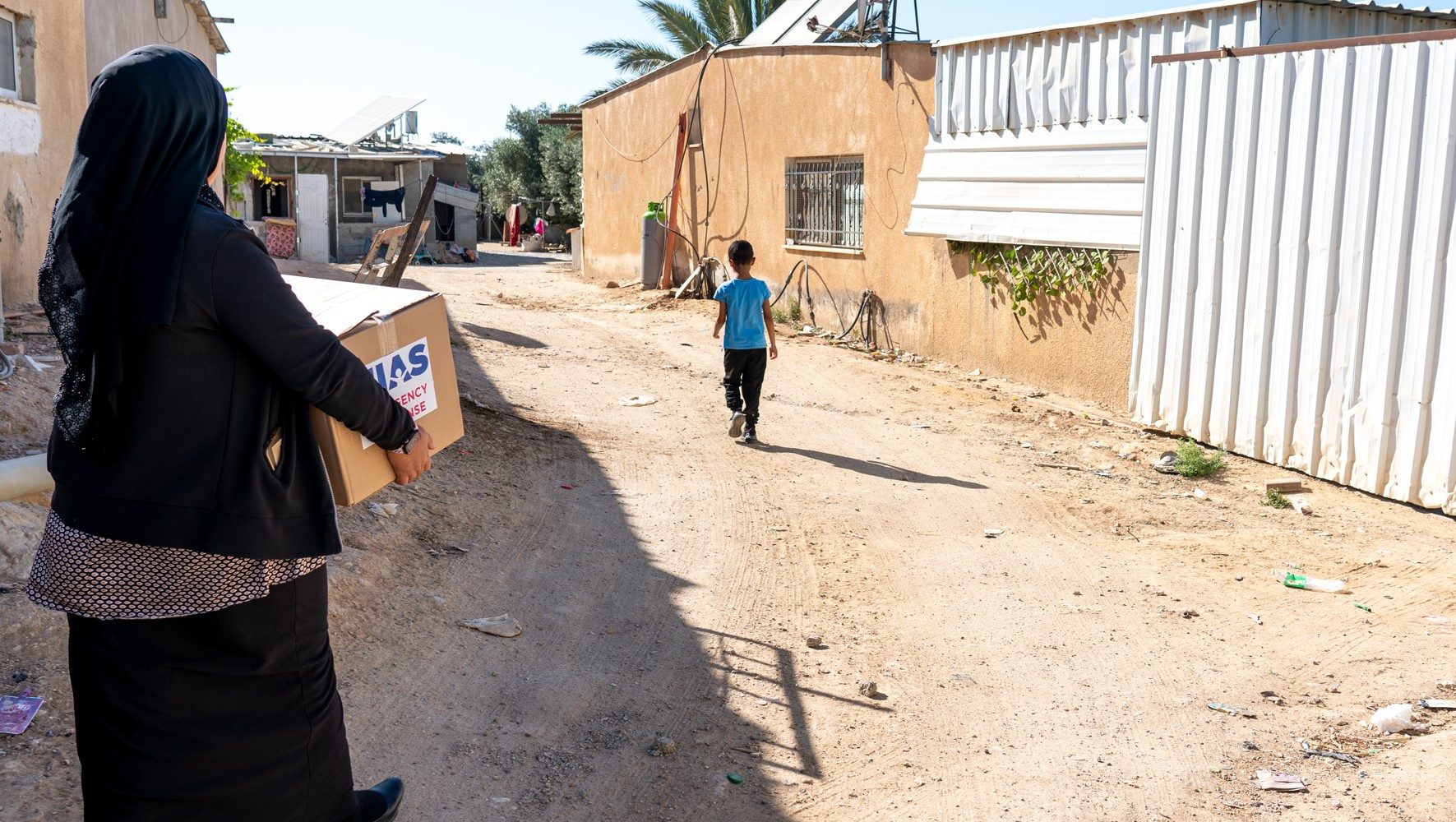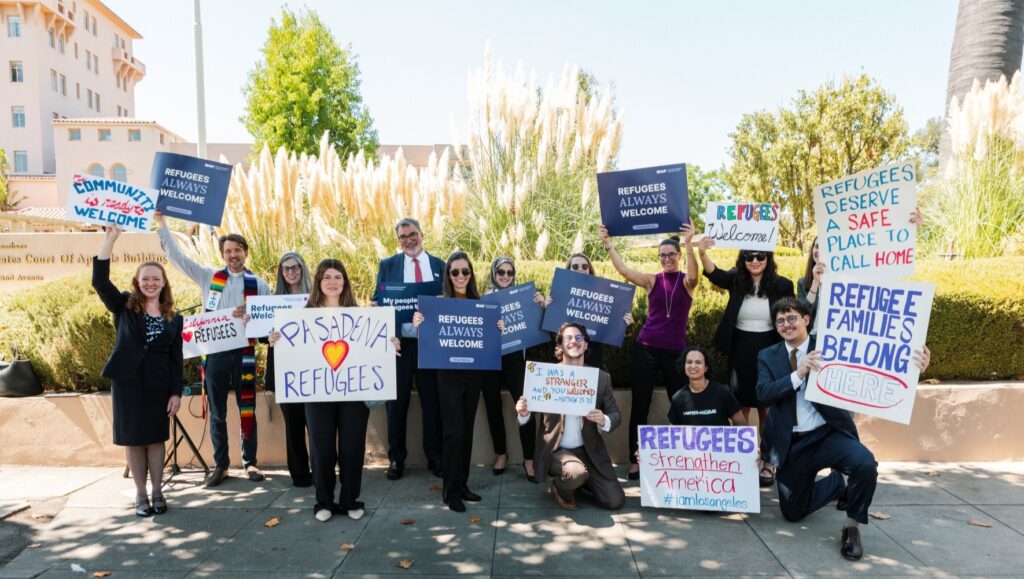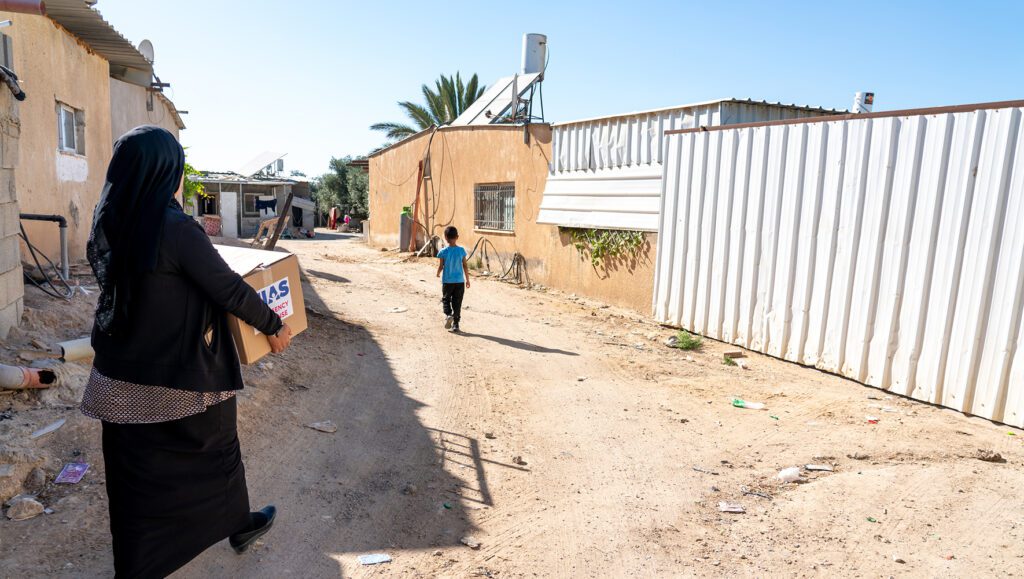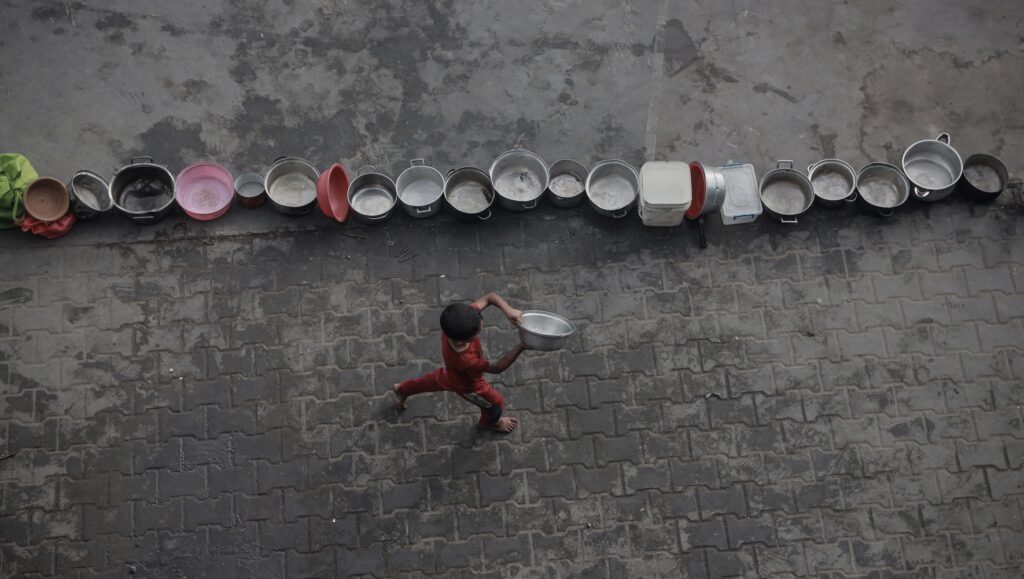
The relationship between the Bedouin — Arab tribes who are descendants of nomads but have settled for generations mostly in Israel’s Negev desert region — and the Israeli government has been fraught for years. Between 1968 and 1989, Israel built seven townships in the northeast Negev for the Bedouin, but a number of Bedouin communities today remain unrecognized by Israeli authorities. Of the 250,000-300,000 estimated Bedouin in Israel, those in unrecognized villages do not have access to water or electricity and are cut out from other public services; sometimes entire settlements are demolished. Unrecognized Bedouin villages are not protected by the Iron Dome, Israel’s air defense system, as their locations are considered “unpopulated areas” by the Israeli authorities. The plight of the Bedouin community has only worsened in the months since the October 7 terrorist attacks.
“It’s difficult to tell you how people live in villages. Why don’t they have the opportunity to live like others? Why can’t our children have dreams like all others?” A*, a pre-school teacher from the community asked. “We are Bedouin women who want to advance on our own. We want the basic things, to feel our children are developing, [but] how can they advance if they don’t have basic things?”
“We are Bedouin women who want to advance on our own. We want the basic things, to feel our children are developing, [but] how can they advance if they don’t have basic things?”A, pre-school teacher
Forging a Long-Term Solution
In the midst of these struggles, Bedouin women have begun to unite to help themselves and their families. Along with their children, already living in poverty and facing increased food insecurity and limited access to healthcare and education, these women are working together to improve their situation and forge long-term solutions.
One part of the solution is HIAS Israel Emergency Response’s partnership with Itach Ma’aki — Women Lawyers for Social Justice — to work with the women of Al Nashmiat, a Bedouin movement for the empowerment and leadership of women. Al Nashmiat provides a range of services in Bedouin villages, including regular leadership and emotional support sessions with counselors. More than 70 group sessions have been held.
HIAS has supported these communities with two food and female hygiene kit distributions, in which nearly 500 food packages were brought to 16 unrecognized Bedouin villages, serving over 3,700 individuals. One distribution for 45 households was specifically for women and teenage girls.
The collaboration between the women-led teams of Al Nashmiat and the HIAS Emergency Response team has not only provided critical support to Bedouin women, but also helped form a special connection to the community, thereby building trust and encouraging women to openly share their worries and hopes for the future.
“Al Nashmiat’s objective is for each woman to be responsible for her village,” a founder of Al Nashmiat said. “Until now, it had always been men in front of men — Bedouin women are not always allowed out or left without a male supervisor. We go to the homes of women, listen to them, understand their problems, and what we can do to help, we do.”
Local partner Itach Ma’aki provides mental health support and supports Bedouin women though pro bono legal representation, defending their rights in the face of issues of domestic violence, employment, residence permits, housing, and food security.
Challenges Remain
The living conditions of Bedouin women in unrecognized villages have worsened since the start of the war, and it is even more difficult now to renew residence permits. Most Bedouin women have no rights, no livelihood options, and no family support in Israel. Some have been arrested and deported.
Bedouin women say they want to live freely but realize they need to be protected too.
“We must do something for the women. All families are like mine, all mothers are like me,” Y*, a mother and member of Al Nashmiat said. “We have the capacity to change the situation and refuse to stay like this; we will continue and succeed in bringing the villages to the place they should be in.”
*Pseudonyms used to protect the identities of individuals.



